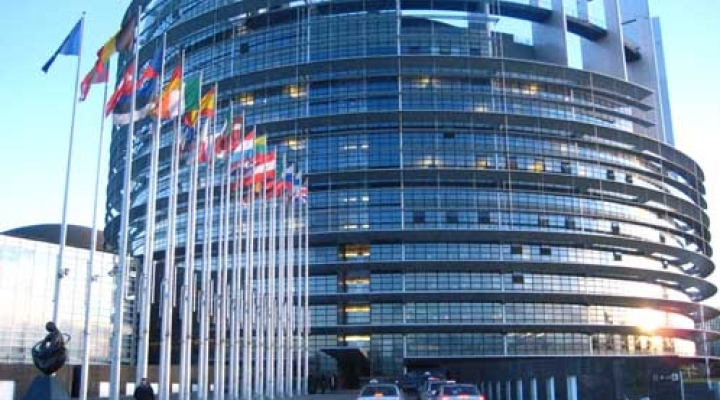About the future of the dairy industry and the 2012 Annual Growth Survey in the EP
Several issues that have a direct effect on the life of the Hungarian community in Transylvania were discussed during the plenary session of the European Parliament in Strasbourg between the 13th and 16th of February.
DAHR’s MEP Csaba Sógor participated in several of the debates on the agenda: Contractual relations in the milk and milk products sector (James Nicholson, conservative, UK) and Employment and social aspects in the Annual Growth Survey 2012 (Marije Cornelissen, green, Holland).
Several important changes were implemented in the EU milk and milk products sector between 2007 and 2009. Unfavourable meteorological conditions caused a decline in the supply, which led to a general increase in prices. Later the financial crisis held up the lowering of prices and enhanced their volatility because demand decreased worldwide and in the EU as well. On the other hand, production prices rose while the level of production in the EU remained constant. Thus prices in the EU plummeted. Final consumers did not benefit from these low prices, but low wholesale prices hit the producers hard. A specialists’ group was formed in 2009 to counteract these developments and to propose middle and long-term solutions in the milk and milk products sector. The group’s report was published in 2010. It establishes that the situation of the sector varies from one Member State to the other, just like the situation and activities of market actors, but the negotiation potential of producers and dairy companies is not in balance. This lack of balance leads to unfair trade practices. The specialists proposed the strengthening of the negotiation potential of producers and the enhancement of the activities of professional organizations, and called for more transparency so that the entire chain of milk production could react to market signals in a way that benefits all actors involved.
Csaba Sógor spoke about the interests of milk producers in the new Member States and called for the establishment of producers’ associations so that producers would not have such a vulnerable position. Here follows the MEP’s speech:
“I would like to salute my colleague’s report, more so because his proposals, which have the support of the Agricultural Committee, seem to take into account the interests of the new Member States as well. I agree that the European milk sector will undergo great changes in 2015 with the disappearance of milk quotas, but I would like to remind you of the fact that these changes will produce exponentially greater trauma in the Eastern part of Europe.
In this regard I would like to call the Commission‘s and the Parliament’s attention to the greater need to urge the establishment of producers’ associations in these states since producers are often totally vulnerable against wholesale buyers and this does not serve the goals of the common agricultural policy.”
With regard to the 2012 Annual Growth Survey (the Cornelissen report), the Hungarian MEP from Transylvania highlighted the importance of safeguarding social achievements and the further development of employment despite the current economic crisis. Here follows the MEP’s speech:
“With regard to the 2012 Annual Growth Survey I feel it is important to emphasize what the report already points out: we cannot overlook social aspects when dealing with the current crisis. Fighting against the debt crisis is the main problem of European states at the moment, but we cannot transfer this burden to the population in a disproportional manner. Recent events put into question the modern view, according to which gradual growth is irreversible and future generations will live better than we do. This view can be strengthened through the sacrifice of economic growth, job creation and social responsibility on the altar of budget consolidation and macro economic stability. I hope that a few years from now we will not look back on 2012 as the year in which we missed the opportunity to prevent social tensions.”











